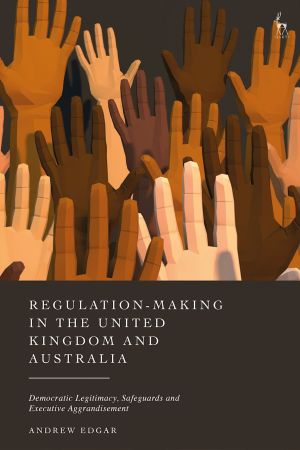
This book shines a spotlight on the way in which parliamentary scrutiny of regulations provides the primary support for democratic legitimacy for regulations in the UK and Australia.
This democratic safeguard is supplemented by public consultation processes. Despite commonly expressed concerns that regulation-making is secretive and undemocratic, it can be recognised to be a democratically sound and important feature of modern law. There are, however, modern practices that remove or limit these safeguards on regulation-making, raising concerns about executive aggrandisement.
This book has two aims. The first is to explain the systems of parliamentary scrutiny in the UK and Australia and their historical development. The development of parliamentary checks on regulation-making through the 20th century established the primary basis for the democratic legitimacy of regulations.
The second aim is to examine recent developments in regulation-making that avoid or minimise this safeguard. Constitutional changes in the UK, transnational regulation, and emergencies such as the COVID-19 pandemic, have affected regulation-making in a manner that avoids or minimises the parliamentary checks that were carefully developed and implemented in the 20th century.
The book contributes to public law in the UK and Australia by analysing recent developments that involve executive over-reach, by reference to the historical development of parliamentary checks on regulation-making.